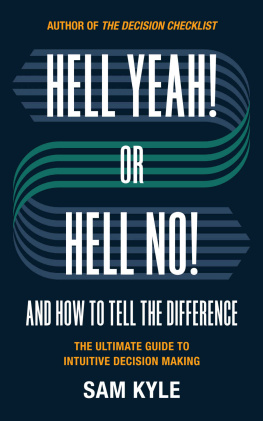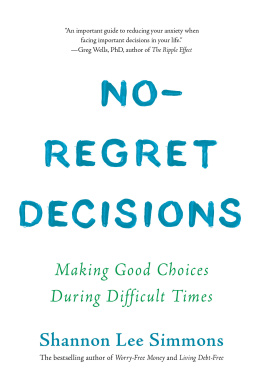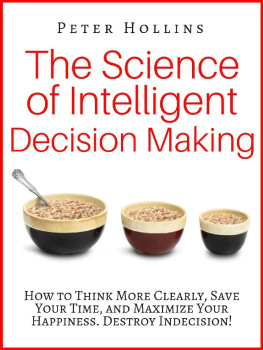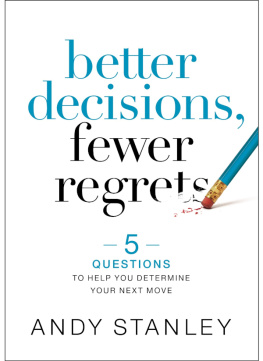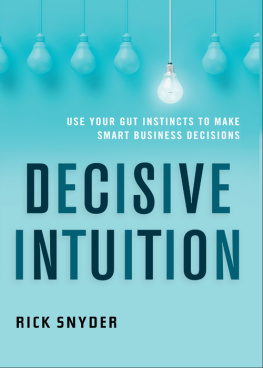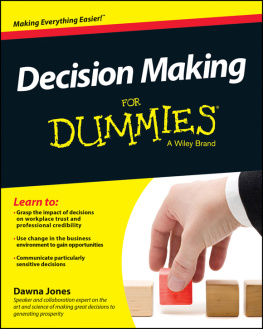And How to Tell the Difference: The Definitive Guide to Intuitive Decision-Making
What is Hell Yeah! or Hell No!?
If you're not saying "HELL YEAH!" about something, wrote writer and CD Baby founder Derek Sivers in 2009, 'say no.'
We're all overstretched and overcommitted these days. Running around trying to become better, trying to check all the boxes: Kids, parents, friends. Read, meditate, exercise. So busy! has become a perfectly normal (even praiseworthy) response to the question how are you? Being busy used to be the exception. Now its the rule. The feeling is one of being perpetually behind, sprinting faster and faster to keep up, yet seeming to stay in the same place. Busy is no longer an adjective, it's a state of being, one that can leave us chasing endless new time management techniques and productivity tactics.
This widespread feeling of time poverty might explain why people still read Derek Sivers's short, succinct blog post years later. This idea that there is a simple way to take control of our time and jettison all the waste that clutters up our day is beyond appealing.
So what is he really talking about? After the success of CD Baby, Sivers found himself with an increasing list of demands on his time. Im sure you can relate to that, even if you havent had the experience of selling the largest online e-commerce store for indie musicians. We all know what schedule creep feels like.
But instead of saying yes to as many opportunities as possible, Sivers adopted a simple filter: saying no to any opportunity or request that didnt elicit an enthusiastic hell yeah!
In other words, if you arent thinking, That sounds so amazing, I cant think of a better way to spend my time, then politely decline. Its easy, at least on paper. Reject anything that doesnt make you excited. Dont waste time trying to convince yourself. Just say no and move on without any guilt. Your time is too precious.
If you feel overwhelmed, or if your attention is scattered in fifty directions at once, you can gain a lot from this approach. By paying attention to your emotional response to opportunities, you can narrow your focus, only devoting time and energy to what's truly worthwhile.
Hell yeah! is about trusting your intuition.
Its about knowing yourself and learning from your experiences to continually hone your knowledge about what works for you.
There are serious upsides to making intuitive decisions across numerous areas of our lives: work, relationships, personal finance, side projects, and more. Upsides like more time doing things we love, and discovering where we can really contribute.
For example, imagine you've received a job offer where the salary is a little below your ideal number. You tell the recruiters this, but they say there's no room for any negotiation whatsoever. They're not willing to budge.
The standard approach to a lowball job offer might be to consider the positives of that role and the career advancement it offers. Surely it's not worth the time you'll spend finding and interviewing for a different role. Anyway, the offer is only slightly below your ideal salary so maybe its not so bad. Right? This is where most of us go in this situation. But this is how we talk ourselves into average and miss out on the greatness that lies on the other side of a hell yeah!
We dont consider the opportunity costs, what were missing out on, as we rationalize why we should take the offer. But think of it this way. Even if the job is a hell yeah! for you, the unwillingness to negotiate could indicate that you're not a hell yeah! for the company in question.
If they truly felt you were the perfect person for the role, they'd be willing to at least discuss meeting your requirements. After all, it's going to cost the company time and money to find another candidate. Plus, letting an ideal candidate go could leave them worse off in the long run. The lowball offer could indicate they've also made it to multiple people. So you'd be well advised to reconsider and wait for a genuine hell yeah! rather than taking a substandard offer.
Why? Because when its a hell yeah! youre more willing to go all in. Youre more likely to get creative, persevere through the obstacles, take calculated risks, and get to success. Its a win-win for everyone involved.
In this book were going to look at how we can use intuitive emotional responses, like hell yeah, to inform decision-making, what it is, how it benefits us, and explore how we can develop this ability. We'll also look at the major error many of us make when thinking about life decisions, and how masters of their fields hone their intuition.
How Our Brains Let Us Down
Before you can start using hell yeah! to make decisions, it will help to understand a bit about how your brain works.
US Secretary of Defense Donald Rumsfeld once said, As you know, you go to war with the Army you have. Theyre not the Army you might want or wish to have at a later tim e . We can apply that to decision-making. We make decisions with the brains we have, not the brains we might want to have.
You dont think the way you believe you do. Many common decision-making approaches, like listing pros and cons, ignore the reality of natural decision-making processes. Most of the time, we're not making rational calculations. Nope, not even you. We arent objectively looking for pros and cons. Were not considering long-term effects. Were evaluating our wants, not our needs.
In Obliquity: Why Our Goals Are Best Achieved Indirectly, economist and writer John Kay describes his experience running an economic consultancy firm that sold decision-making models to corporations. After a decade of doing this, Kay asked himself why he didnt use similar models for making decisions in his business and personal life. That was when he realized his clients weren't using them as intended. Instead, they were making decisions, then using his models to justify them, both to themselves and others. They didn't need the modelsthey needed a means of strengthening their arguments. Rationalizing their choices. Justifying their decisions.
Although we might like to think otherwise, this is how we all frequently make decisions. Even the smartest people do it. It's known as choice-supportive bias. Its similar to confirmation bias, except that it exclusively refers to the way we retrospectively assign support to whatever justifies our choices. The advantages of our chosen option are crystal clear and obvious. Any disadvantages fade into the background. For the other competing options, the disadvantages are clearer and the advantages go unnoticed.
Rationalization is not the same as rationality--its the process of telling ourselves that something irrational is rational, and whatever weve done was the right thing to do. Decision-making models, like the ones Kay sold at his consultancy, can serve as a means of rationalization.
Choice-supportive bias is most obvious when we're making purchases (hence why it's also known as post-purchase rationali z ation ). If you're choosing a new car, you might walk into a dealership and decide what you want within seconds, then spend hours listing the pros and cons of various models. Funnily enough, the pros list for your chosen car will be longer and the cons list shorter than for the others. The list provides a handy rationalization for your choice, even though gathering more information hasn't improved the quality of the decision. We're biased towards placing undue emphasis on irrelevant information that supports what we want or overstating the value of less meaningful factors in the effort to prove weve made the right choice.
To give another example of how choice-supportive bias can play out, imagine you're listening to a friend complain about their relationship after a couple of drinks. Again. They say they're thinking of ending it because in between work, training for a marathon, and evenings with friends, they don't have time for their partner. They claim lack of time is the only reason they cant make it work. But it doesn't take a psychologist to know that can't be the real explanation. If the relationship were a prioritya genuine hell yeah!they'd be willing to make the trade-offs necessary to find the time. Lack of time is a less hurtful excuse than lack of interest. People make time for what they really want: the things that make them get up in the morning. The things that make them feel awesome. What they truly value.

